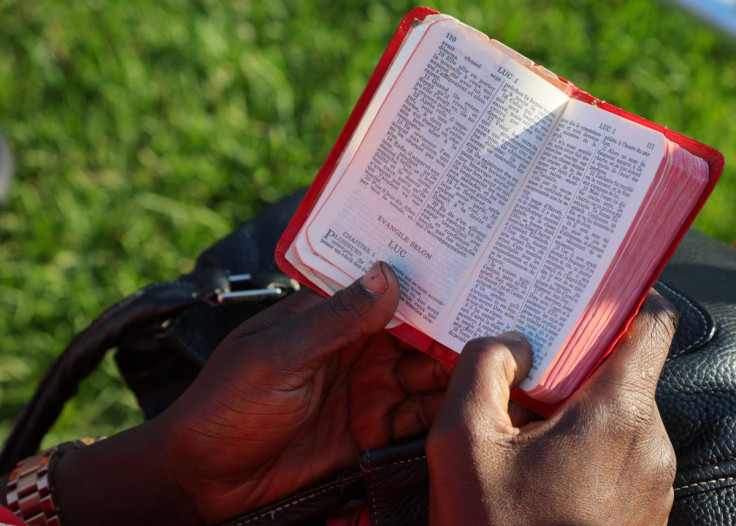Pope Seeks Forgiveness For Sexual Abuse At Canadian Residential Schools

Pope Francis on Thursday asked for forgiveness for sexual abuse at Canadian schools for indigenous children run by Catholic orders, addressing a deep wound that many survivors wanted him to acknowledge during his apology tour in Canada.
At an evening vespers service with priests and nuns in the Quebec City cathedral, the pope said the Church in Canada was on a new path after being "devastated by the evil perpetrated by some of its sons and daughters."
"I think in particular of the sexual abuse of minors and vulnerable people, scandals that require firm action and an irreversible commitment," the pope said on the penultimate day of his six-day visit to Canada.
"Together with you, I would like once more to ask forgiveness of all the victims. The pain and the shame we feel must become an occasion for conversion: never again!"
It was the first time the pope specifically addressed the issue of sexual abuse at the schools, where more than 150,000 indigenous children were separated from their families and brought to between 1870 and 1996.
The children were starved or beaten for speaking their native languages and many sexually abused in a system Canada's Truth and Reconciliation Commission called "cultural genocide."
The comments build on a historic apology by the pope on Monday in the town of Maskwacis, the site of two former schools, when he called the Church's role in the schools, and the forced cultural assimilation they attempted, a "deplorable evil" and "disastrous error."
But that apology, while evoking strong emotion and praise as a first step in reconciliation, was also criticized by survivors for falling short of what they had hoped for. Lack of a mention of sexual abuse was among their grievances.
'DEEP DISMAY'
Since then, the pope has continued to elaborate on his apology and has alluded to institutional failure by the Church in allowing abuse to run rampant at the schools -- addressing another criticism by survivors.
Earlier on Thursday, the pope made some of his strongest comments yet on the collective failure of the Catholic Church over abuse at indigenous schools.
Presiding at a Mass at the Basilica of Sainte-Anne-de-Beaupre outside Quebec City, the pope spoke of "the burning questions that this pilgrim Church in Canada is asking."
"In confronting the scandal of evil and the Body of Christ wounded in the flesh of our indigenous brothers and sisters, we too have experienced deep dismay; we too feel the burden of failure," the pope said.
"Why did all this happen? How could this happen in the community of those who follow Jesus?"
At the start of the Mass, two indigenous women unfurled a banner asking him to formally rescind 15th century edicts, known as the doctrine of discovery, in which the papacy justified the taking of indigenous land in the New World.
The basilica where the Mass was held is the oldest Catholic pilgrimage site in North America and stands on the site where a small church was built in 1658 to house a statue of St. Anne that French colonists considered miraculous.
About three-quarters of the 1,400 spots inside were given to residential school survivors and other indigenous people while thousands of others watched on giant television screens outside. Overall, it was the biggest turnout since the pope arrived.
Psychological counselors were on hand in case needed by residential school survivors.
Many of the residential schools were run by Christian groups for successive Canadian governments' policy of assimilation. Most were run by Catholic religious orders.
Prime Minister Justin Trudeau's office said in a statement that during his private meeting with the pope on Wednesday, he discussed the need for the Church to "take concrete action to repatriate indigenous artifacts, provide access to residential schools documents, address the doctrine of discovery, and ensure justice for survivors, including for the Rivoire case."
Canada wants France to extradite retired priest Johannes Rivoire so he can face a charge of sexual abuse from when he worked with indigenous in Canada's North.
Indigenous Canadians have asked the Vatican Museums to return artifacts sent to the Vatican over the centuries by missionaries, including a kayak made of wood and sealskin by the Inuvialuit people of the Mackenzie Delta in the Western Arctic that is believed to be between 100 and 150 years old.
© Copyright Thomson Reuters 2024. All rights reserved.





















